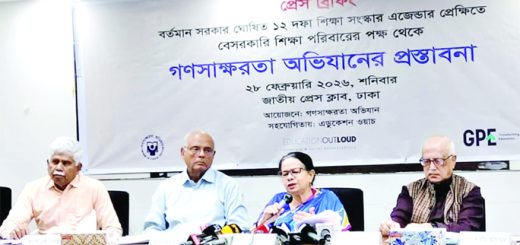Climate change drives dengue spread

Shahariar Islam Sovon :
Dengue fever, a potentially life-threatening illness caused by the mosquito-borne dengue virus, has become an increasingly severe problem in Bangladesh.
As climate change affects weather patterns, Bangladesh is experiencing a substantial rise in dengue cases, with health facilities across the country overwhelmed by the influx of patients.
Bangladesh has reported escalating dengue fatality rates for three consecutive years.
Beyond environmental and viral host factors – common to many dengue-endemic regions – concerns are mounting over systemic mismanagement and delays in patient care that are hindering effective treatment.
Health officials recently reported that 1,138 patients were hospitalized with dengue.
Experts warn that delayed hospital visits, rapid progression to dengue shock syndrome, and recurrent infections are contributing to a higher mortality rate this year.
Among the deceased, at least 113 were children, including a significant number under the age of five, highlighting the grave impact on vulnerable populations.
Save the Children emphasized that these fatalities underline an urgent need for better healthcare access and public awareness.
The ongoing climate crisis is also worsening the outbreak. Unusually high rainfall, coupled with rising temperatures and humidity, has fueled a growth in mosquito populations, extending dengue’s reach to new regions and prolonging the outbreak season. Experts stress that climate change is a key driver in the surge of cases.
“I’ve had fever, body aches, and headaches for two days. Today, I tested positive for dengue and came to the hospital,” shared Shoikat, a 45-year-old private sector employee from Dhaka, who was admitted to the DNCC Dedicated Dengue Hospital in Mohakhali on October 28.
Entomologist GM Saifur Rahman told The New Nation that the failure of Dhaka city corporations to effectively identify and eliminate Aedes mosquito breeding sites, combined with limited surveillance in district towns, is a primary factor behind the outbreak.
As health authorities work to curb the outbreak, public awareness efforts are being intensified to promote preventive measures such as removing standing water and using mosquito repellents.
However, experts emphasize the need for a comprehensive strategy, including improved urban planning, enhanced waste management, and long-term measures to address the root causes of dengue in Bangladesh’s changing climate.




